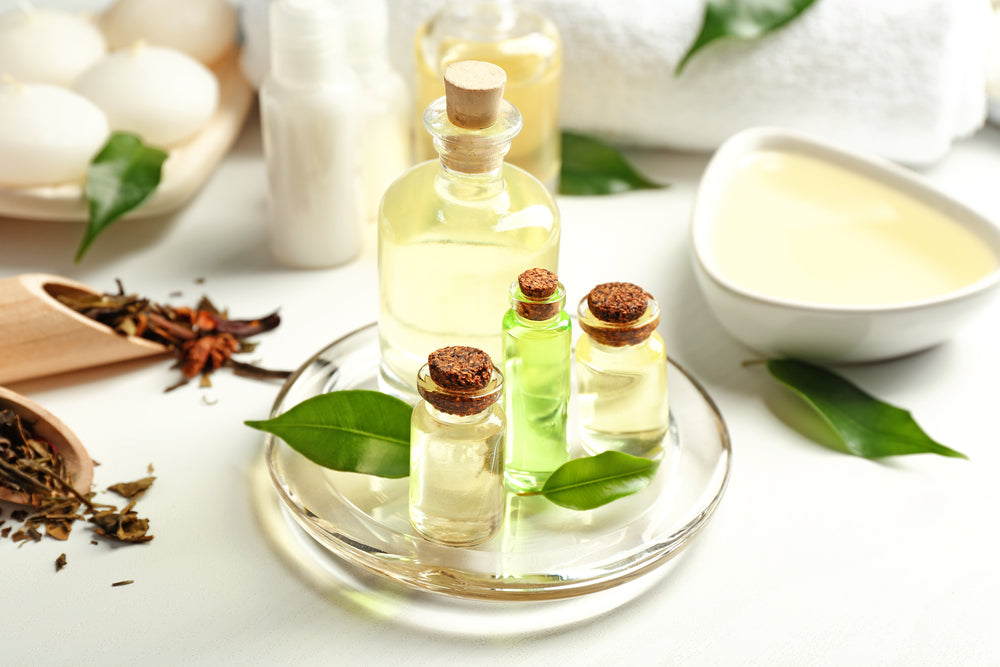We all know how annoying it is to have itchy ears. It’s something you can’t just easily fix with a quick scratch or rub. Well, you technically could give it a quick scratch. But more times than not, it’s probably doing more harm than good.
Luckily, with at least one or two ingredients, you don’t have to travel anywhere or consult a doctor to get your itchy ear fix. First, let’s identify what an itchy ear is. Then, think about some causes and how to help alleviate the itching in the comfort of your own home.
What Is An Itchy Ear?
An itchy ear canal is often the result of an inflamed or flaky skin condition. This happens when the sensitive skin inside the ear becomes damaged, waterlogged, or infected with bacteria or fungus. Along with the itching sensation, symptoms can include dry flaky skin, soreness, pain, and a watery discharge that emits an odor.
The condition is pretty common and won’t endanger your hearing. But what could bring harm to your ears is the use of objects that you might use to scratch inside your ear. If you’re guilty of this, stop now.
Scratching will only inflame the delicate skin inside the ear which will actually increase the itching sensation even more. Plus, you could damage your eardrum, either by rupturing it or by pushing earwax against it.
Before determining the best source of treatment, it’s important to become familiar with some of the causes. This will help you to identify how the problem started in the first place.

Common Causes of Itchy Ears
There are many reasons why you might have an itch in your ear. Here are some of the main culprits:
- Fungal infections – Are you prone to fungal infections in other parts of your body, such as your feet or groin area? It is possible for fungus to infect the ear canal too.
- Skin conditions – Do you suffer from any other skin conditions like eczema or psoriasis? Unfortunately, skin conditions like these can easily spread to the ear canal.
- Swimming – Swimmers tend to be in the high-risk category for developing an itchy ear. Water can carry germs and fungus into the ear which can then lead to infection. Swimming can also create excess moisture which creates a breeding ground for bacteria. This causes infections like Swimmer’s Ear (which can also be caused by other conditions like excess earwax or damaging health practices like extensive use of q-tips).
- Ear infection – Itching is often one of the first symptoms of ear infections, which can have many different causes.
- Dry skin – If your ears don’t produce enough wax, you may have dry skin in your ears which can cause them to itch.
- Q-tips or cotton buds – Using q-tips or cotton buds a big no-no. However, if you find that wax or other debris is persistently present in your ears, there are safer and more productive ways to clean them. The problem with using q-tips is that you risk damaging the soft skin inside the ear. This is an open invitation for bacteria to invade, and you also risk pushing earwax against the eardrum.
- Weather conditions – Weather conditions, namely warmer temperatures, may be causing your itchy ears. Do you live somewhere that’s hot and humid? The increased water in the air raises your chances of developing an infection. This happens because fungal infections, in particular, thrive in warm, humid conditions.
- Hair or bath products – Do you regularly use products such as hairspray, shampoo, shower gel, bubble bath, styling gel, or hair dye? The residue from these products can easily get inside the ear during a bath or shower and cause irritation, which leads to itching.
- Allergies – Are you allergic to things like pets, dust, food, or pets? The histamine release that is triggered by the allergen and causes a runny nose and red puffy eyes might also be responsible for the itch in your ear canal.
- Trauma to ear canal – People who have itchy ears usually use q-tips, or scratch their ear with things like bobby pins, toothpicks, or paper clips that might accidentally damage the sensitive skin inside their ears, which can, in turn, cause more itching or infection, which will cause more itching.
Home Remedies for Itchy Ears
Understanding how to treat itchy ears and how to properly clean your ears is critical. Thankfully, remedies may be right under your nose.
Vinegar
Distilled white vinegar, when combined with rubbing alcohol, offers relief for symptoms and cleans the area very well. Start by mixing equal parts of distilled white vinegar and rubbing alcohol. Then use a syringe or dropper to apply the mixture to your itchy ear.
An alternative for distilled white vinegar is apple cider vinegar; when it is diluted, the antiseptic properties of apple cider vinegar will promote your inner and outer ear health. This home remedy reportedly works wonderfully for preventing yeast infections or other types of fungus from causing an itchy ear.
Aloe Vera
With so many benefits, it’s no surprise that aloe vera can be a solution for itchy ears. Drops can help restore the pH balance, which helps calm and soothe the inflammation or swelling of the inner ear tissue.
We also love this option because it is safe to use with children, who are more susceptible to getting itchy ear symptoms. You can extract the gel from aloe vera leaves and put it in a dropper or syringe to apply to your ears (three to five drops are recommended).
If you experience other symptoms other than itchy ear in the area, you should probably check with a doctor before using aloe vera as a home remedy.

Warm Oil
When I was younger, my aunt would rub this Asian floral oil on me whenever I had a stomach ache. It’s no wonder warm oil is one of the most well-known home remedies for an itchy ear. The great thing about using oil as a cure is that there’s a few to choose from, including:
- Olive oil
- Tea tree oil
- Coconut oil
- Garlic oil (olive oil infused with garlic)
Choose your oil of choice and heat it up. Make sure it doesn’t get too hot to the point where it could burn your skin. A good way of warming is doing a double-boiler type thing with warm water and no boiling for about 20 minutes.
Add a few drops and drain it on a towel by tilting your head sideways.
Hydrogen Peroxide
Hydrogen peroxide seems to be a popular remedy. People say it helps get rid of excess ear wax and cleans the ear without removing the protective layer of wax. It works similarly to oil; place a few drops in your ear, let it work for a few seconds until the bubbling noise stops, and let it drain.
Water
With water, you could also add alcohol to make sure that the area remains clean. Mix a bit of rubbing alcohol with water and use a syringe (either ear or bulb varieties will work just fine) to drop the solution into your ear.
When you want to remove the solution, you can either let it drain out naturally by lying down on the side or by reusing the syringe you chose for dropping the water and alcohol in.
If it feels like there’s a lot more than itchiness going on (bad odor, pain, etc), it would be best to consult with a doctor to see whether you need to have them cleaned or be prescribed medication or drops.

You’ll likely need to see an ENT specialist (ear, nose, and throat). Your doctor might also take a swab of your ear canal to determine whether a fungus is present.
What happens next depends on the underlying condition:
- Your doctor may prescribe you ear drops. Ear drops will contain a minimum of two active ingredients: 1. An ingredient such as hydrocortisone that will quickly subdue the itching and any resultant swelling, and 2. An antibiotic to kill the bacteria which causes the infection.
- You may get swimmer’s ear drops to treat the various factors contributing to swimmer’s ear.
- If you are diagnosed with having a fungal infection, your doctor might also prescribe anti-fungal drops or ointment as well.
- You may be prescribed a steroid cream or lotion to use for preventing itching and earwax buildup.
- You may also get oral antibiotics if your ear infection is accompanied by fever or blood or pus draining from your ear.
- It may be recommended that you change lifestyle habits, such as the kind of shampoo, earplugs, or earbuds you use. It may also be recommended that you start new habits, such as wearing earplugs while swimming or working out to prevent moisture buildup.
Whatever the case is, it’s always good to know to understand why something happens, how to fix it, and how to prevent it.
Let us know how you’ve tried to clean your ears and what has worked well for you!

 Log in
Log in
